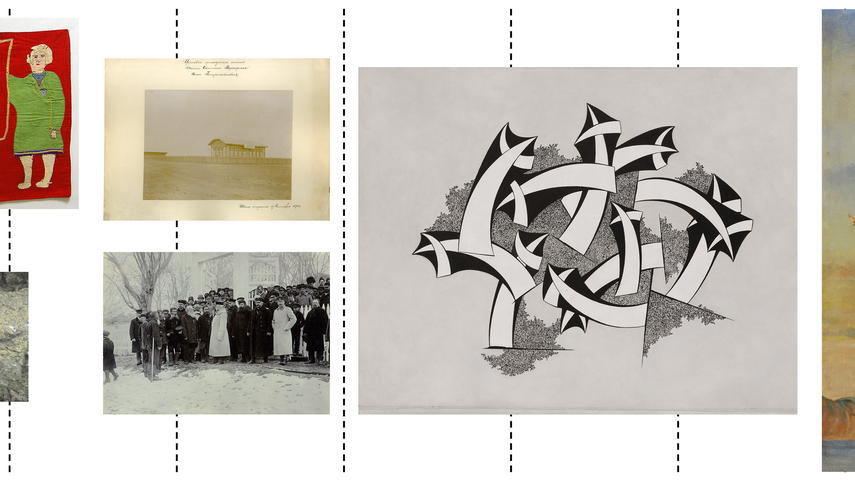The fourth “wave” of The Coastline Paradox exhibition focuses on linguistic boundaries: with nature, other languages and cultures.
Language on the Brink
- Date:
- 26 Nov–
15 Dec 2024
- Age restrictions
- 6+
The most noticeable of these boundaries runs in the co-existence of the Russian language and the languages of the indigenous peoples of the North. The Itelmen, Koryak, Chukchi, and Even languages were not written down until the 1930s. They were included in the school curriculum, and the first spelling books and textbooks were published, but this did not stop local languages from dying out. Today they are only studied for one hour per week at Kamchatka schools. As teachers say, this is not enough to preserve continuity—all local languages are close to reaching dead status. The boundaries that they delineated have become blurred, and with them, the dialogue that arose on these boundaries is forgotten.

As we contemplate the long unwritten history of the indigenous peoples of Kamchatka, we may also notice a less obvious boundary. Where do languages that do not aspire to be written direct their efforts? Perhaps their speakers enter into a dialogue with nature, whose signals (animal behaviour, smells, sounds, changes in the landscape), although important and understandable to humans, are not recorded. “External” languages also enter into a dialogue with Kamchatka. Foreign explorers described the region in different ways, sometimes in artistic form. These works are also located on the brink: are their authors talking about a distant land, or about themselves through the prism of an “exotic” culture?
The works presented at the exhibition demonstrate two views of Kamchatka: "from the outside“—through eighteenth-century French engravings of peninsula landscapes or the album of a Soviet scientist with views of volcanoes—and “from the inside,” through bone miniatures, photocopies of children’s drawings, paintings by Koryak artist Kirill Kilpalin, and drawings by Bering Island resident Sergey Pasenyuk.
During the preparation of The Coastline Paradox, the curatorial team, together with native language teachers, playwright Yegor Zaitsev, and director Polina Kardymon, created a video sketch for a production of Chekhov’s play The Cherry Orchard. This work makes a gesture of reverse appropriation: in a classic text of Russian literature, translated into the Koryak language and read aloud in the village of Palana, the theme of the loss of traditional culture comes to life. Another result of the programme was a poetry project by Andrey Cherkasov, where the letters of the Itelmen, Russian and Koryak alphabets are combined in a spelling book.